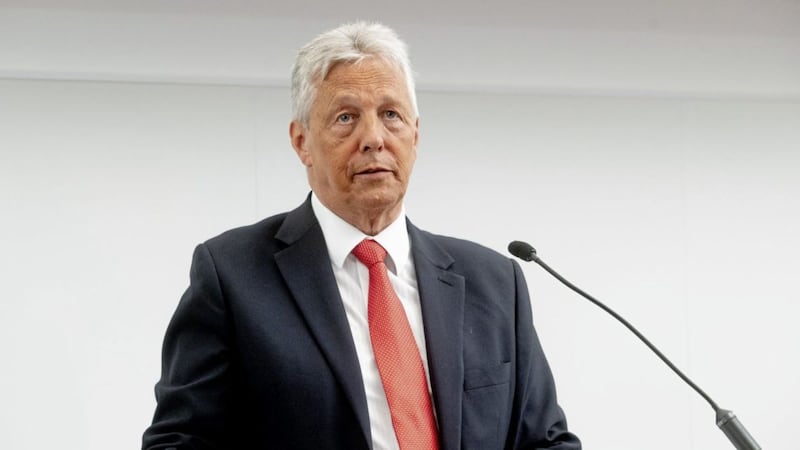John Maynard Keynes is supposed to have coined the epigram, “When the facts change, I change my mind. What do you do?”
He may not have been the first person to say it. Some suggest it was another economist, Dr Paul Samuelson, who won the Nobel Prize for Economics. Regardless of who said it, the validity of the statement remains.
Hanging on to a fixed position despite changing facts and new information is just stupid, leaves you isolated, defensive and open to ridicule. It’s even worse if you’re in a position of leadership for you hoist your followers into the same beached boat with you. That’s a position successive leaders of unionism have adopted for decades.
This head in the sand posture is not about the current weakness and lack of authority Arlene Foster displays in her inability to manage Edwin Poots and wayward, irresponsible DUP MPs exemplified by the clownish Wilson. No, it’s the inability of unionist leaders to address the big picture.
Peter Robinson is the only one in the last thirty years who tried to do so and his lack of success illustrates the obstacles a unionist leader faces. Thirty-three years ago Robinson, deputy leader of the DUP, with Frank Millar, general secretary of the UUP, the party’s smartest member, set up the Unionist Task Force to work out a combined unionist response to the 1985 Anglo-Irish Agreement which established new facts on the ground: unionists were boycotting everything and speaking to no one. Their report of course was ignored by Paisley and Molyneaux, so Robinson and Millar resigned their positions, Robinson returning in a year.
By 2011 the facts had changed again so Robinson returned to the fray warning unionists in an important speech that, given the figures of the census soon to be released, unionists would have to broaden their appeal beyond Protestants otherwise the union would end, not immediately, but inevitably.
Senior figures in the DUP (and UUP) recoiled and warned him not to be getting too close to Martin McGuinness.
Robinson pulled his horns in but did not give up. He has persisted in speeches and lectures and articles advising unionists to engage with nationalists or the Irish government or both, or anyone, about the future. Robinson, who unlike most unionist politicians can count – remember his ‘PR for DUP Dummies’ lessons in elections – knows perfectly well that unionists are a diminishing minority who must come to terms and face the biggest challenge, namely to learn to live on equal terms with the rest of the people on this island. Failure to do so and continuing to withdraw into enclaves in the east as the north goes green offers no alternative outcome but eventually the unionist rump living in a 1,000 foot high rise on the Copeland islands.
Unfortunately Robinson is a lone voice. Knowing his audience he must have expected hostility from keyboard warriors, but sadly no one in the present unionist leadership, DUP or UUP, has uttered a word of encouragement, let alone agreement with what is an unavoidable strategy.
What is even more disappointing is the silence of the unionist middle-classes, business and professionals. Yes, many have deserted the DUP to vote Alliance since Brexit, for they see the writing is on the wall and wish to remain attached to a modern European society and economy. Like Robinson they must be aware of the inevitability of a border poll with rapidly changing demography, the shock of Brexit to the GB economy and citizens’ rights, and to the standard of living here.
However, they must also conclude that, given the refusal of Arlene Foster even to accept the reality of any of these matters, let alone to address them, there is no one in unionism like De Klerk in South Africa or Rabin in Israel with either the confidence or the capacity to reach out. Instead, unionism remains in thrall to its backwoodsmen.









